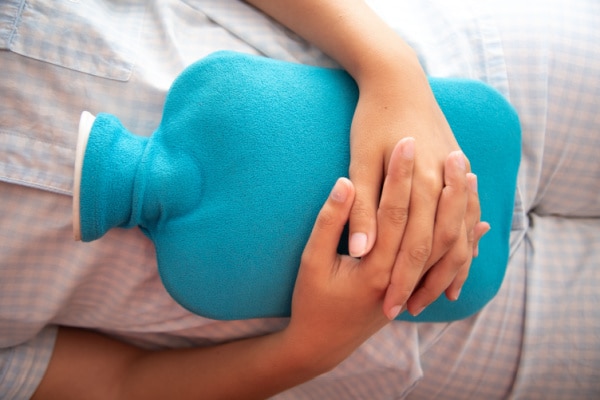15% off €35 OR 20% off €45
How to stay cool in the heat

Summary
11. Invest in a fan
It’s an obvious option... but it’s also one of the most effective. If you can, have a fan ready and check it works before the hot weather arrives.
22. Work with your home
Leave windows open on the side of your house where the sun isn’t facing, and swap throughout the day.
33. Brave the cold shower
Again, you’re likely already doing this when the hot weather hits. But did you know that cold showers may boost your circulation and more.
The temperature is creeping up... Here in the UK, we’re not well equipped for extreme heat.
At best, it’s uncomfortable, and at worst it can be seriously dangerous. So, what are some ways you can stay at a safe temperature?
We asked our colleagues at H&B to share their most innovative tips for beating the heatwave...
6 top tips for staying cool
These are just extras to help you cool down; you’ll need to follow all government and health guidelines on hot weather, too. The NHS has a useful guide on staying safe during extreme heat.
Try to stay inside during the hottest hours of the day (usually between 11am and 3pm) and seek shade wherever possible.¹
Keep an eye on the news and don’t travel unless necessary if there are warnings. Check on elderly people, children, or those who may otherwise be particularly vulnerable in a heatwave.
With the official safety guidelines in mind, here are a few bonus ways you can stay cool...
1. Invest in a fan
2. Work with your home
Shut your curtains to help keep warm air out. It might be tempting to throw open the windows and doors, but be tactical – only open them when it’s cooler outside than in.
Leave windows open on the side of your house where the sun isn’t facing, and swap throughout the day.
Covering windows and glass doors will also help keep the heat out. Thermal blinds are a good investment as they help keep things warm in winter and cool in summer.
3. Brave the cold shower
3. Brave the cold shower
Again, you’re likely already doing this when the hot weather hits. But did you know that cold showers may boost your circulation, help reduce depression, and more?² ³
Try a quick splash at lunch time to help keep you cool in the hottest hours of the day and refresh you for the afternoon.
Handpicked content: The benefit of cold showers: 9 advantages


4. Focus on the right spots
Certain areas of your body heat you up and cool you down quicker than others.
Applying cool water or ice packs to the back of the neck, your wrists and ankles, the backs of your elbows and knees, your temples, and your inner thighs can help your body to cool down more effectively.
Your hands, feet, and cheeks can also help you cool down. They’re known as glabrous (non-hairy) areas, and they have densely packed blood vessel structures that help to remove heat from the core of the body.⁴
Dip your feet in a bowl of ice water while you work, or apply cold, wet towels to these areas.
5. Freeze a hot water bottle
5. Freeze a hot water bottle
They’re a staple in winter – so why can’t we use them in the opposite way?
Half-fill a hot water bottle with cold water and freeze, then wrap in a tea towel and use as a giant ice pack.
However, do NOT use the bottle for hot water again after this. Freezing a hot water bottle may weaken it and could lead to breakages and severe burns if you use it for hot water again.


Use a designated hot water bottle for cold water – choose one that’s a different colour to your usual or label it.
Handpicked content: What to pack for a happy & safe holiday
6. Stock up ahead of time
No panic-buying here! But it’s a good idea to be prepared if there’s something you anticipate you’ll need.
For example, have a few ice cube trays handy so you’re not running to the shops in the middle of a heatwave.
And consider your pets – consider buying them a cooling mat ahead of time to make sure they're safe, too. You might even want a spare for yourself!
...and there's more!
Turns out our colleagues are full of great ideas, so here are a few more innovative tips:
- “Try 5 minutes of mindfulness! Breathe through your nose to slow your breathing – it can help regulate your body temperature”
- “I’d also recommend a damp towel across the bottom of your bed for your feet – helps to lower temperature at night”
- “Open your loft hatch 20 minutes before going to bed... All of the hot air rushes into the loft with the cold air sinking from the loft into the house”
- “Baseball cap under the cold tap and then rinse the excess water, cools your head!”
- “Aloe vera gel in the fridge! Great on sunburn or just to cool off in general”
The final say
As mentioned, you’ll need to follow all government guidelines and health warnings on top of these.
But they’re certainly worth considering when you’re sweltering at home or work. Anyone for a foot bath?
- https://www.metoffice.gov.uk/weather/warnings-and-advice/seasonal-advice/health-wellbeing/hot-weather-and-its-impacts
- https://www.uclahealth.org/news/6-cold-shower-benefits-consider
- https://www.sciencedirect.com/science/article/abs/pii/S030698770700566X?via%3Dihub
- https://www.wemjournal.org/article/S1080-6032(14)00405-0/fulltext
The advice in this article is for information only and should not replace medical care. Please check with your GP or healthcare professional before trying any supplements, treatments or remedies. Food supplements must not be used as a substitute for a varied and balanced diet and a healthy lifestyle.
Last updated: 26 June 2023




